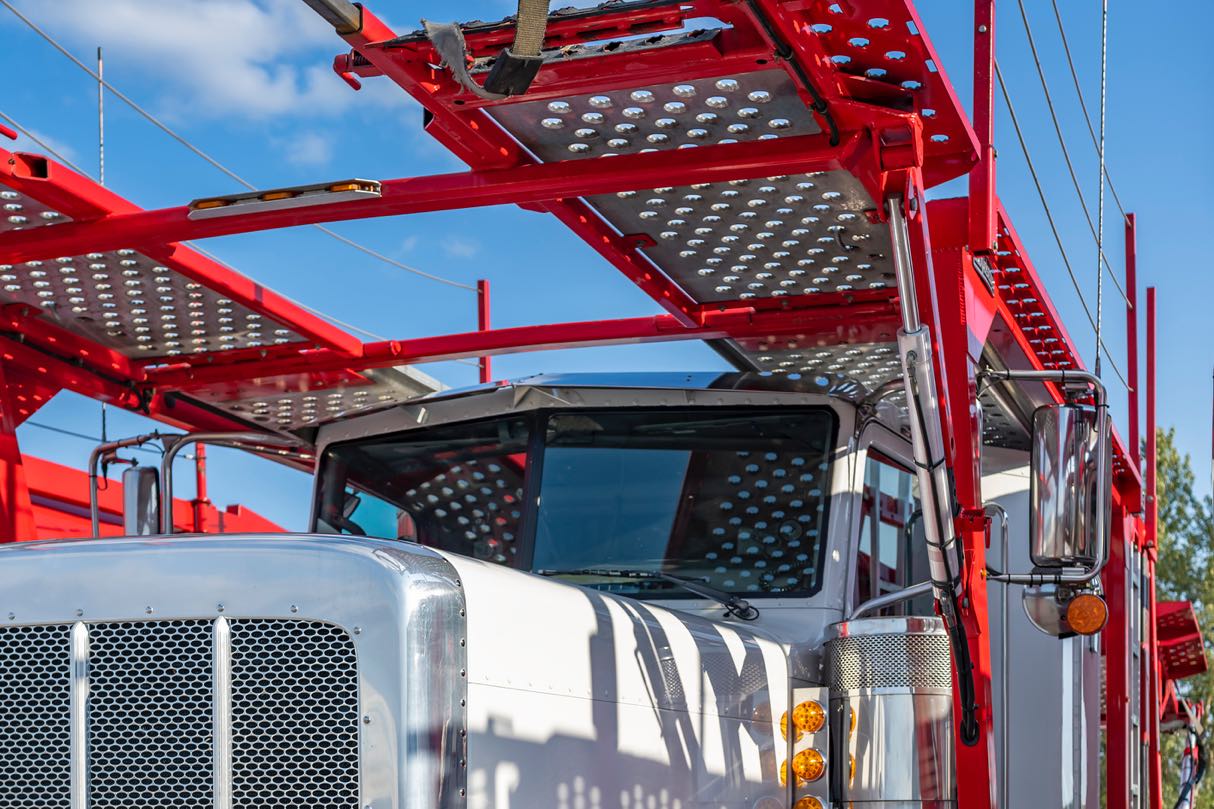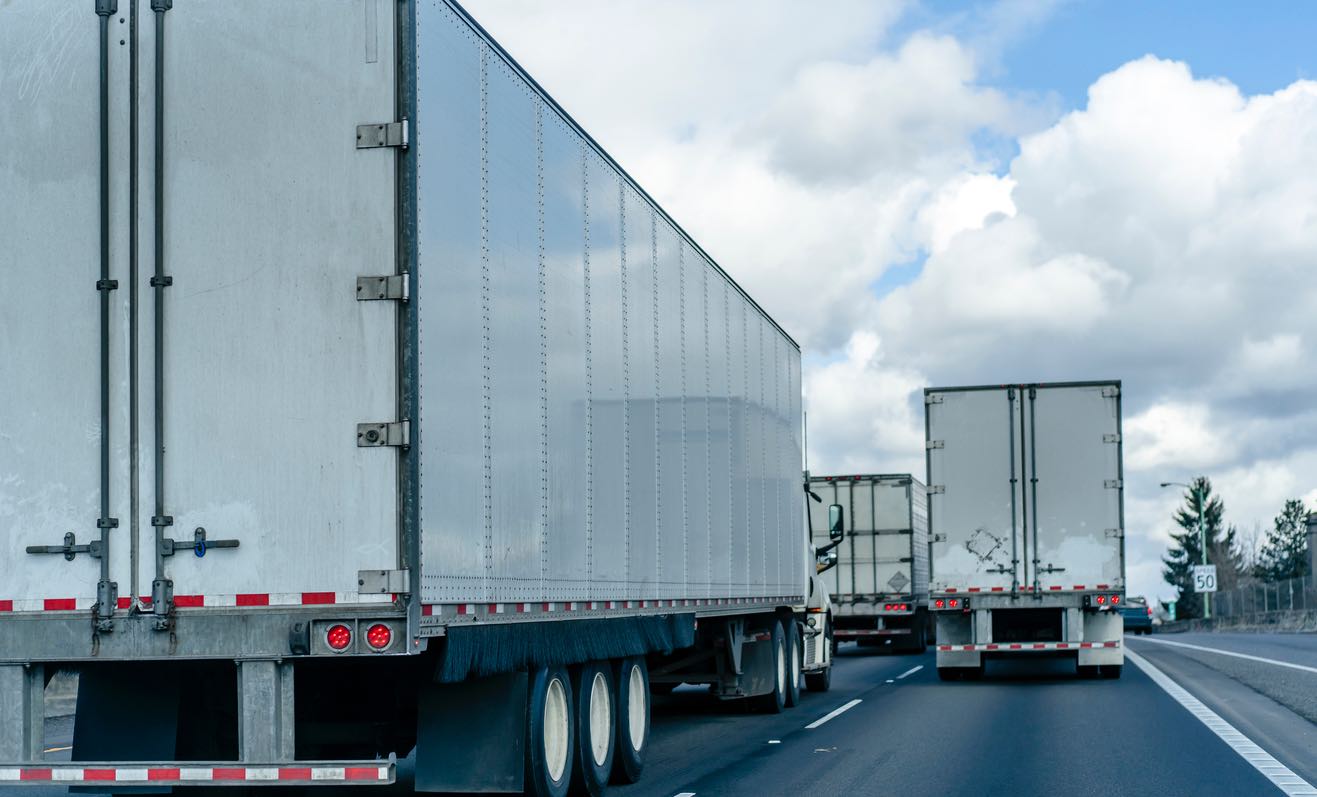The year 2024 will be crucial for the American transportation sector as it navigates a landscape of particular opportunities and challenges. The industry is at a turning point as carriers struggle with increased operating costs, the need to retain competent workers, and the requirement to integrate sophisticated technologies. This article explores these patterns and offers perspectives on how the transportation industry in America is changing. In a time of economic upheaval and technological innovation, the trucking industry’s capacity for adaptation will determine not just its short- and long-term viability. The industry is trying to strike a balance between the needs of a rebuilding economy and the complexities of a world that is becoming more digitally and ecologically sensitive, so this year is especially important.
A number of significant issues, including evolving consumer needs, technology advancements, regulatory changes, and economic situations, will have a significant impact on the trucking industry’s environment in 2024. Trucking businesses are at the front of a logistical revolution as the world economy continues to recover from the effects of recent shocks. Companies’ operating budgets are under pressure from rising fuel prices and maintenance costs, which is driving them to look for more economical and efficient solutions. As the industry deals with an aging driver population and a competitive employment market, attracting and retaining a talented staff continues to be a major focus. These elements, together with the speed at which technology is developing—from renewable energy solutions to driverless cars—are propelling the sector toward an exciting and perhaps difficult future. In order to provide a thorough understanding of the condition of trucking in the US as we go further into 2024, this introductory investigation aims to break down these dynamics.

Surging Operational Costs Over the course of the year 2024, transportation expenses will experience a significant increase, hitting an all-time high of $2.25 per mile. There are a number of factors that contribute considerably to this upward tendency, including rising fuel prices, rising maintenance costs, and rising driver pay. This increase highlights a major challenge for carriers since they are attempting to strike a balance between efficiency and profitability.
Fuel Tax and Operational Dynamics Stakeholders are saying that the elimination of the federal fuel excise tax may save carriers roughly $25,000 per tractor, which is gaining traction in the discussion over the tax. It is believed that this cost reduction might serve as an incentive for updating fleets with trucks that are both more new and cleaner for the environment, therefore changing the operational landscape of businesses that deal with transportation.

Retention in the Face of Labor Unrest The transport industry continues to place a significant emphasis on labor, with the objective of preserving worker stability in spite of fluctuations in the demand for freight. In light of the fact that strikes and actions by unions are examples of the ripple effects of labor unrest, it is imperative that strategic labor management be implemented. In addition, the industry considers the lessons that may be learned from the bankruptcy of Yellow Corporation, which had a substantial influence on the labor market.
Impact of Yellow Corp. Bankruptcy Yellow Corp’s bankruptcy, which was the largest in the history of the transportation industry, has transformed the dynamics of the logistics sector. The company’s assets were soon taken over by competitors, particularly its transportation terminals, which were in great demand. The fragility of this industry was brought to light by this unfortunate event, as was the requirement for quick reactions to market swings of this nature.

Electric Vehicles and Sustainability Shifts With the help of environmental policies and regulatory obligations, the trucking industry is becoming more and more open to the deployment of electric cars. Freightliner eCascadias are being gradually included into the fleets of companies like as Estes and Walmart Canada, which are at the forefront of this trend. The change is a huge step toward a more environmentally friendly future for trucks.
Cybersecurity in the Digital Age In the wake of the cyberattack on Estes, the industry has placed a greater emphasis on the need of cybersecurity. In order to counteract dangers such as phishing, it is increasingly considered vital to make investments in effective security systems and staff training on the subject. The combination of technology with transportation operations is becoming increasingly prevalent, as this demonstrates.
The Battle for More Truck Parking The lack of available parking spaces for trucks continues to be an issue of concern. Efforts are still being made to grant government funding for the expansion of parking spaces, which highlights the vital need for infrastructure improvement in order to sustain the trucking workforce.
Addressing Brokerage Fraud In addition, the industry is dealing with brokerage fraud, which is a problem that is affecting drivers both monetarily and in terms of the number of hours they spend driving without being paid. It is becoming increasingly popular to advocate for stricter actions to be taken against such malpractices, with the goal of fostering a climate that is more egalitarian and transparent in the trucking industry.

In the continuous history of the American trucking sector, 2024 will be remembered as a turning point year marked by a distinct set of difficulties and achievements. The industry needs effective cost-management measures to keep up with the growth in operating costs, which are made worse by variable fuel prices and rising labor expenditures. Simultaneously, labor-related concerns, such as the lack of qualified drivers and union activity, necessitate clever HR strategies that concentrate on both retaining current employees and luring in new ones. The goal of reevaluating pay and work conditions is to make trucking a more desirable career option in light of these labor difficulties.
Technological developments are another important factor in the industry’s evolution, especially in the areas of cybersecurity and electric cars. Electric truck usage is increasing as a result of the movement towards sustainability, which is being fueled by environmental awareness and legislative demands. Although this shift seems encouraging, it also presents a unique set of expenses and issues related to infrastructure development. Furthermore, the increased emphasis on cybersecurity brought about by the rise in cyberthreats necessitates significant funding for strong technological defenses and staff training initiatives. The way the trucking industry adapts to these technological changes will have a big impact on how resilient it is to future setbacks and how efficient it operates. Looking ahead, the industry’s capacity to innovate, embrace change, and adapt will not only define its success in 2024 but also provide the groundwork for its long-term development and sustainability.

Ship A Car, Inc. stands out as a prominent freight and vehicle transport company in the United States of America in this market that is always shifting and developing. Their skill and dependability are demonstrated by the fact that they have a BBB rating of A+ and are licensed by both the Department of Transportation and the Federal Motor Carrier Safety Administration. They have transport coordinators that are committed and educated, and they are ready to assist you with your shipping needs. You can reach them at (866) 821-4555 anytime.
Q: What are the main factors contributing to rising trucking costs in 2024?
A: To a large extent, the rise in transportation costs may be attributed to the fact that fuel prices, maintenance costs, and driver compensation have all increased.
Q: How has Yellow Corp.’s bankruptcy affected the trucking industry?
A: The bankruptcy of Yellow Corp has resulted in a considerable reallocation of assets, with rivals purchasing its terminals and having an influence on the dynamics of the labor market and the market itself.
Q: Why is cybersecurity becoming increasingly important in the trucking industry?
A: In light of the increasing reliance on digital systems and the requirement to safeguard operations from dangers such as ransomware attacks, cybersecurity has become an extremely important topic.




